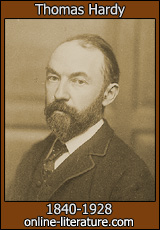Today marked the last class of the class for whom I was TA'ing, and the source of stories found in this blog. Do not fear, for next semester I will be student teaching, and continuing work on my Graduate Assistantship, so undoubtedly I will have more to share.
Anyway, today's class was spent going over the final exam students will be writing a week from today, and I led the discussion. For the final, students are required to use two texts, one an article from
Harper's that I mentioned
earlier, and the other being an outside source which the students have found perusing the New York Times, or one of the texts assigned through out the year. Students will begin by summarizing one of the arguments presented by Crister (Harper's), and then proceed to have a conversation between the two pieces and their own opinions. It was my task today to help students get a grasp on the Crister article.
The article was a bit lengthy, and Crister presented a few different arguments, all of course supporting his main idea. I began by asking students to offer up what they deemed his major argument to be, and as it was more-or-less spelled out for them in the sub-title, they nailed it pretty good. We then moved on to discuss his other arguments. Most students seemed occupied with viewing the article through an animal rights lens, and so I attempted to gear the discussion in that manner.
In the end it seemed students understood what was going on in the article, and I was allowed to present a diagram of ethics that I stole from Roderick Frazier's
The Rights of Nature. Undoubtedly, ethics professors would probably find fault or dispute the diagram, but none-the-less I find it to be an interesting one that makes students think about their world and - in the end - hopefully make them better humans. A lofty task no doubt, but I truly feel the diagram helps.

The diagram, as you may be able to see from my notes, looks almost like a cross sectional view of a tree that is ever expanding through time. At the center of the circle is the Magna Carta which limited the powers of the King. As time progressed, these powers became more limited, and rights became more distributed through the populace; gradually moving down through the classes. I forget the details between the Magna Carta (1215), and the Bill of Rights (1791). As society progressed, rights were given out further to include African-Americans, women, people of color, and it is here that the diagram was applied to animals. The outer circles began to include animals, mainly mammals, those that are larger in size and are somewhat resemblant of human kind. We then progress to include all mammals, and then to the other Animal Kingdoms, and so on until possibly one day we include the entire Universe as having basic rights of existence not to be impeded upon by human behaviour. These circles concerning non-humans are dotted as there is still progress to be made, but the ideas exist, and there are actions towards giving rights to these bodies -
PETA,
ALF. There is really no knowing how far or in depth these rights may expand. Currently our scientific paradigms tell us animals do not think or communicate in such a way as to place them on level with human kind, but as paradigms are constantly changing - after all it was not so long ago that the bumps on your head told of your intelligence - we cannot say just how far these rights will one day extend.
As a side. If you note in my diagram I had wrote "Black Men" then scribbled out "Black" and wrote "A.A." This was not a slip of the racist sort, for at the time when Black people gained rights it was mostly in recognition of African American men. However, according to my most recent knowledge, using the term "African American" to describe Black people is racist as it assumes that all Black people are from Africa.
 urban settings. This is good. I want to get a job in The City come next fall, and this as close as it gets. The first district is more local than the other, and some of the individuals I work with at my job beeping groceries have graduated from that district. We have discussed my student teaching briefly, and some customers have heard where I was going. Most customers have a comment, and they all lie along the same idea - I will need help. I have received comments like "God bless you" or "Good luck with that one. You're going to need it." No one has offered me a positive response like "Oh, that will be a good experience."
urban settings. This is good. I want to get a job in The City come next fall, and this as close as it gets. The first district is more local than the other, and some of the individuals I work with at my job beeping groceries have graduated from that district. We have discussed my student teaching briefly, and some customers have heard where I was going. Most customers have a comment, and they all lie along the same idea - I will need help. I have received comments like "God bless you" or "Good luck with that one. You're going to need it." No one has offered me a positive response like "Oh, that will be a good experience."

 The group consists of some decent students, but the thing is, they are quiet. Eerily quiet. This makes for any discussion difficult. They do not like to answer questions that I ask, and giving their individual opinions is unheard of. Instead of a group discussion, I am forced to pose questions and prod them gently with a heavy club to illicit an answer.
The group consists of some decent students, but the thing is, they are quiet. Eerily quiet. This makes for any discussion difficult. They do not like to answer questions that I ask, and giving their individual opinions is unheard of. Instead of a group discussion, I am forced to pose questions and prod them gently with a heavy club to illicit an answer.  The
The  The other day I
The other day I  With that said, I will get back to the first few lines I spewed forth.
With that said, I will get back to the first few lines I spewed forth. 

